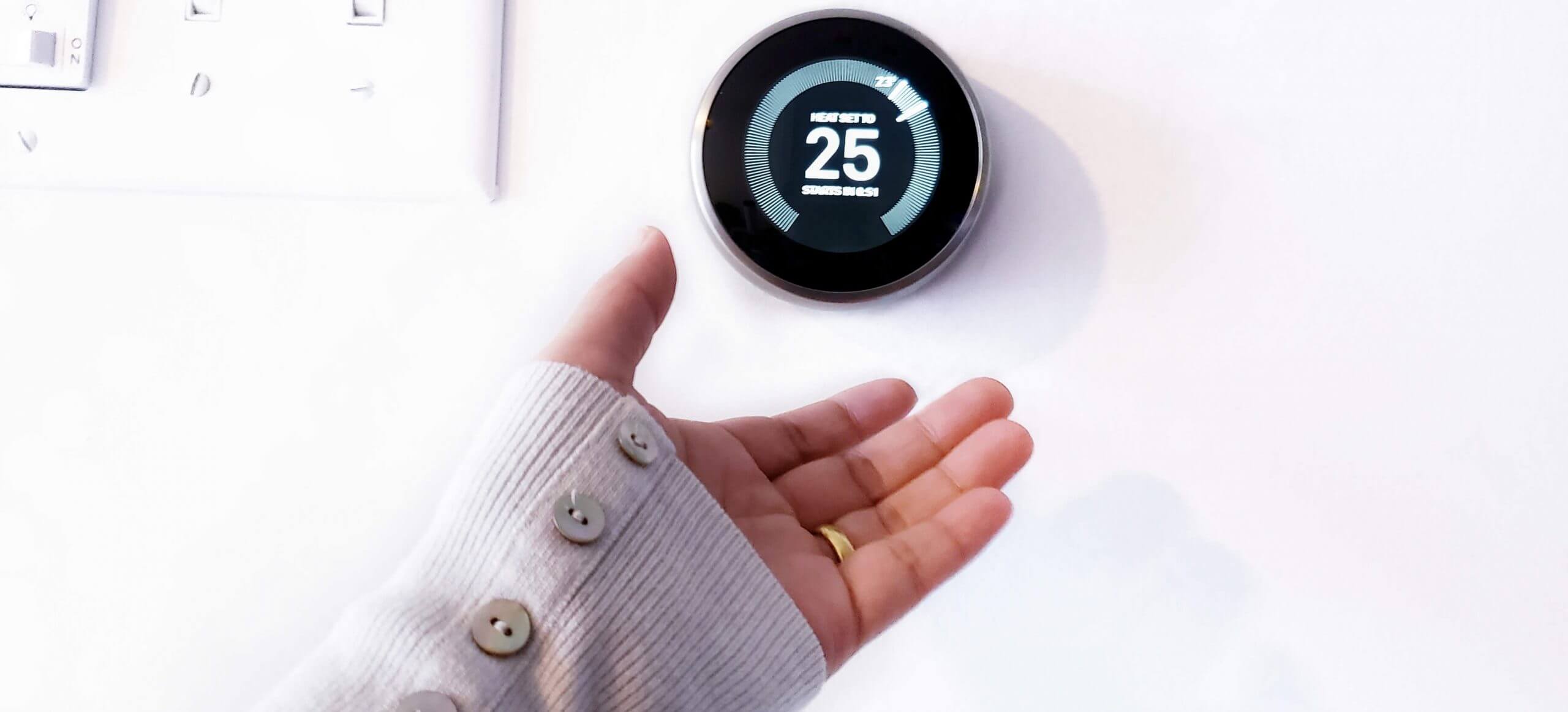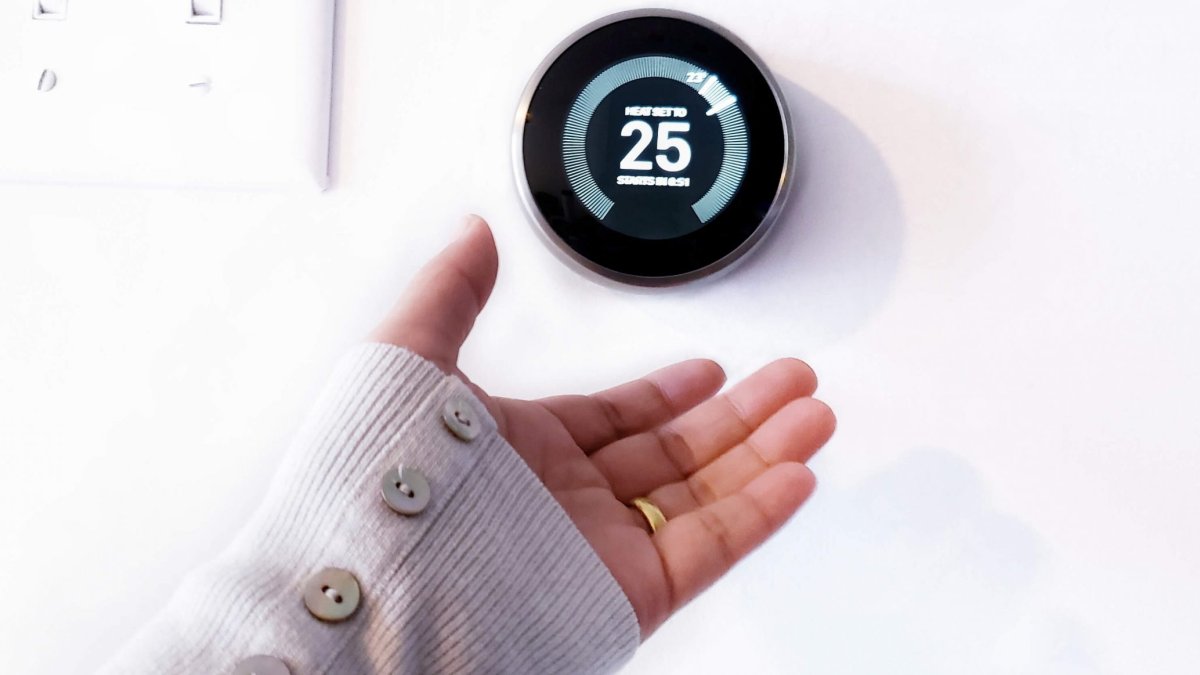
Internal components of digital thermostats evaluate the temperature of the room and control the heating accordingly to maintain the desired temperature.
Currently considered “outdated,” mechanical thermostats regulate room temperature utilizing two expanding and contracting metal parts. However, they are often considerably less costly and less exact than their digital counterparts.
Contrary to common misconception, a wireless radiator thermostat is a type of digital thermostat that must still be wall-mounted. However, you will also receive a remote control or portable thermostat that communicates wirelessly with the fixed thermostat. This is the origin of the name.
What is the function of a wireless room thermostat?
It connects to the internet in your home and can be operated remotely via an application on another device. If you lack trust in your ability to install the thermostat, you should always employ a professional.
Installing a wireless thermostat in your home offers several benefits.
Control the temperature of your house while you are away.
When the thermostat of your air conditioner is connected to the Internet, you may control it from anywhere in the world. If you forget to switch to a mode that conserves energy before leaving the house, you may do it remotely through computer, smartphone, or tablet. This is particularly helpful if you forgot to set your thermostat to vacation mode before departing for a trip.
Receive updates when issues arise.
A wireless thermostat can alert you if it senses a problem with your air conditioner, such as if your home’s temperature rises too high or if the unit malfunctions. This will keep you informed of your system’s status without requiring you to physically access your thermostat.
View the current forecast for the weather. Numerous wireless thermostats can display both the current weather and the forecast, which can be helpful when deciding what temperature setting to use.
Get reminders to update your filter.
One of the biggest reasons why consumers neglect to replace their air filters is simple forgetfulness. A wireless thermostat will alert you when it is time to replace your air filter, ensuring that you always have a clean, effective filter in place.
Alter the temperature of your home from the comfort of your sofa.
The ability to manage your system from anywhere in the United States is one of the best benefits. How often have you returned to your desk at work only to find you forgot to adjust your thermostat to save money while you were gone? WiFi thermostats permit continuous tweaking. Sign in to your account to start economizing. You may also adjust it based on the weather; if a cold front is approaching, you can go into your account to prevent the system from activating.
Monitor the energy consumption of your house.
Using clever software, you will be able to track your everyday activities. This can provide information on who and when the temperature is being manipulated. Are there individuals of the family that expend more effort than others? The program collects the data and creates a report on your heating and cooling management. You may use this knowledge to make changes to your lifestyle.
Reduced Energy Expenditures
Wireless thermostats with built-in automation increase usability, efficiency, and potential energy savings. Numerous intelligent thermostats analyze your heating and cooling habits and adjust the temperature automatically based on whether you are at home, asleep, or absent. This reduces energy use and utility expenses over time.
Installing a smart thermostat
The manufacturer will always offer minimum instructions with your new smart thermostat.
- Before beginning any electrical DIY project, you must always switch off the power.
- Faceplate removal may need unscrewing in order to gain access to the previous thermostat.
- Label the wires: Label the wires from your prior thermostat by affixing letters to the terminals where the wires were connected. Use every measure available to identify each wire. Most thermostats have four wires, however you may have more. Identify everything. You may also choose to take a photograph.
- Remove the old thermostat by unscrewing it and removing it carefully from the wall. This should be straightforward to remove with a screwdriver. Make cautious not to take the cords with you.
- Ensure that the new thermostat is correctly fastened into the wall using a level before mounting it. Install the device’s plastic casing after marking the wall, then hang the device using the markings you made.
- Wire the new thermostat by attaching each wire to its respective terminal. Each wire must be pulled to check its stability.
- Reconnect the electricity and check whether your new thermostat has a start-up screen. If this is not the case, turn off the power and inspect the wiring to confirm that the wires are in the proper positions and are secure.
Every wireless thermostat for a room has its limitations.
It is advisable to replace the batteries in your wireless radiator thermostat every time you change the time, since low or dead batteries may have unexpected consequences.
Depending on the architecture of your home’s walls, certain wireless signals may not be able to pass through them, resulting in a malfunctioning heating system. Not only should you avoid putting the thermostat near a microwave or oven, but also near brick or metal walls.
Looking for the best way to control your heating and cooling costs? It might be your thermostat and not your HVAC system. Install a WiFi radiator thermostat from Tado immediately and assume responsibility for the energy efficiency of your house.
Alex Jordan
Related posts
Stay connected
Today's pick
- The Power of Business: Building Success in the Modern EconomyUnderstanding the True Meaning of Business Business is the foundation of economic growth and development. It involves producing, buying, and selling goods or services to meet the needs of people. Every product we use, from clothing to technology, is the result of business activities. Business... The post The Power of Business: Building Success in the […]

